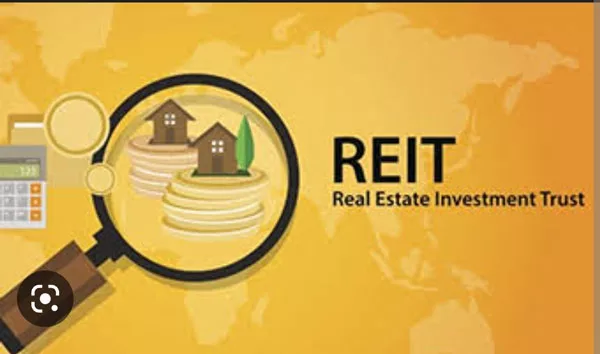Real Estate Investments: The Ultimate Guide for Seniors Looking to Diversify Their Portfolio
Table of Contents
Introduction
Real Estate Investments aren’t just for the rich and famous or those house-flipping TV personalities. They’re for anyone, especially seniors like us, who are looking to diversify their financial portfolio.
So, grab your favorite cup of joe or herbal tea, and let’s dive into the world of bricks and mortar!
Real Estate Investing for Beginners: A Primer
If you’re new to the game, don’t fret. Real estate investing for beginners can be as simple as buying a rental property or as complex as commercial real estate.
The key is to start small and learn as you go. You don’t need to be a real estate mogul to get started; you just need a willingness to learn and perhaps a good pair of reading glasses.
Real Estate for Seniors: Why It’s a Smart Move
Now, why should we, the golden generation, consider real estate? Well, Real Estate for Seniors offers several benefits. It provides a steady income stream, potential tax benefits, and let’s not forget, it’s a tangible asset.
You can touch it, feel it, and even plant roses in the front yard. Plus, it’s a great way to leave a legacy for your grandkids, aside from your famous apple pie recipe, of course.
How to Invest in Real Estate with No Money: Myth or Reality?
You might be thinking, “I’m on a fixed income; how can I invest in real estate with no money?” Well, it’s not entirely a myth.
There are creative financing options like owner financing, lease options, or even partnering with someone who has the funds. So, don’t let your bank account deter you; where there’s a will, there’s a way!
Real Estate Investment Trusts (REITs): A Less Hands-On Approach
If the thought of dealing with tenants or fixing leaky faucets makes you cringe, consider Real Estate Investment Trusts (REITs). These are companies that own or finance income-producing real estate across various sectors.
You can invest in a REIT just like you would a stock, and they typically offer higher dividends. It’s real estate investing without the dirty work!
Best Real Estate Investments for Seniors
So, what are the best real estate investments for seniors? Rental properties are always a good start, especially if you live in a touristy area.
You could also consider vacation rentals, commercial properties, or even flipping houses if you’re up for a challenge. The key is to match the investment with your lifestyle and risk tolerance.
Real-Life Real Estate Investment Examples
Let’s talk about Jane, a 65-year-old retiree who invested in a small apartment building. She hired a property manager to deal with the day-to-day tasks and now enjoys a steady income stream.
Then there’s Bob, who invested in a REIT and enjoys the dividends without the hassle of property management. Both are excellent real estate investment examples that show you can tailor your investment to fit your needs.
The Blogging Opportunity: Share Your Real Estate Journey
Ever thought about sharing your investment journey with the world? Starting a blog could be a great way to do that.
And let’s be real; it’s 2023, and blogging is one of the easiest ways to make some extra cash. So why not monetize that lifetime of experience?
Conclusion
Investing in real estate in your golden years doesn’t have to be a daunting task. With the right strategy, you can continue to grow your wealth and enjoy a comfortable retirement.
So go ahead, take that first step, and remember, you’re not just getting older; you’re getting richer!
Questions & Answers
- Q: Is it too late to start investing in real estate at 70?
- A: Absolutely not! It’s never too late to start; you just need to adjust your strategy to suit your age and risk tolerance.
- Q: What are the tax benefits of real estate investing?
- A: Tax benefits can include depreciation, mortgage interest deductions, and capital gains tax advantages. Always consult a tax advisor for personalized advice.
- Q: Can I invest in real estate overseas?
- A: Yes, you can, but it comes with its own set of challenges and risks, such as currency exchange rates and unfamiliar property laws. Do your research before taking the plunge.
Q: Is Real Estate Investing Risky?
- A: All investments come with some level of risk, but real estate is generally considered a stable and long-term investment. Just remember, the key is to do your homework and consult professionals.
Q: How Do I Get Started with Real Estate Investments?
- A: Start by educating yourself. Read books, attend seminars, and consult with real estate professionals. Once you’re comfortable, you can start looking for properties that fit your budget and investment strategy.
Q: Can I Invest in Real Estate if I Still Have a Mortgage on My Home?
- A: Yes, you can. Having a mortgage doesn’t disqualify you from investing in additional properties. However, lenders may look at your debt-to-income ratio, so keep that in mind.
Q: What Are the Ongoing Costs of Real Estate Investing?
- A: Ongoing costs can include property maintenance, taxes, insurance, and property management fees. Always factor these into your investment calculations.
Q: How Do I Choose a Good Location for My Investment Property?
- A: Look for areas with strong job markets, good schools, and low crime rates. A desirable location will make it easier to find tenants and could result in higher property values.
Q: What’s the Difference Between Passive and Active Real Estate Investing?
- A: Passive investing involves less hands-on work and could include REITs or crowdfunding. Active investing requires more involvement, like being a landlord or flipping houses.
Q: How Can I Diversify My Real Estate Portfolio?
- A: Consider investing in different types of properties, such as residential, commercial, or vacation rentals. You can also diversify by location, investing in different cities or even countries.
Q: How Do I Calculate ROI on a Real Estate Investment?
- A: ROI is calculated by taking the net profit of the investment and dividing it by the initial cost. Multiply the result by 100 to get a percentage.
Q: What Are the Tax Benefits of Real Estate Investments?
- A: Tax benefits can include depreciation, mortgage interest deductions, and potentially lower tax rates on long-term profits. Always consult a tax advisor for personalized advice.
Q: Can I Make Money by Blogging About My Real Estate Experiences?
- A: Absolutely! Blogging is a fantastic way to share your journey and monetize your experiences. You can earn through affiliate marketing, sponsored posts, or even by offering real estate courses.




